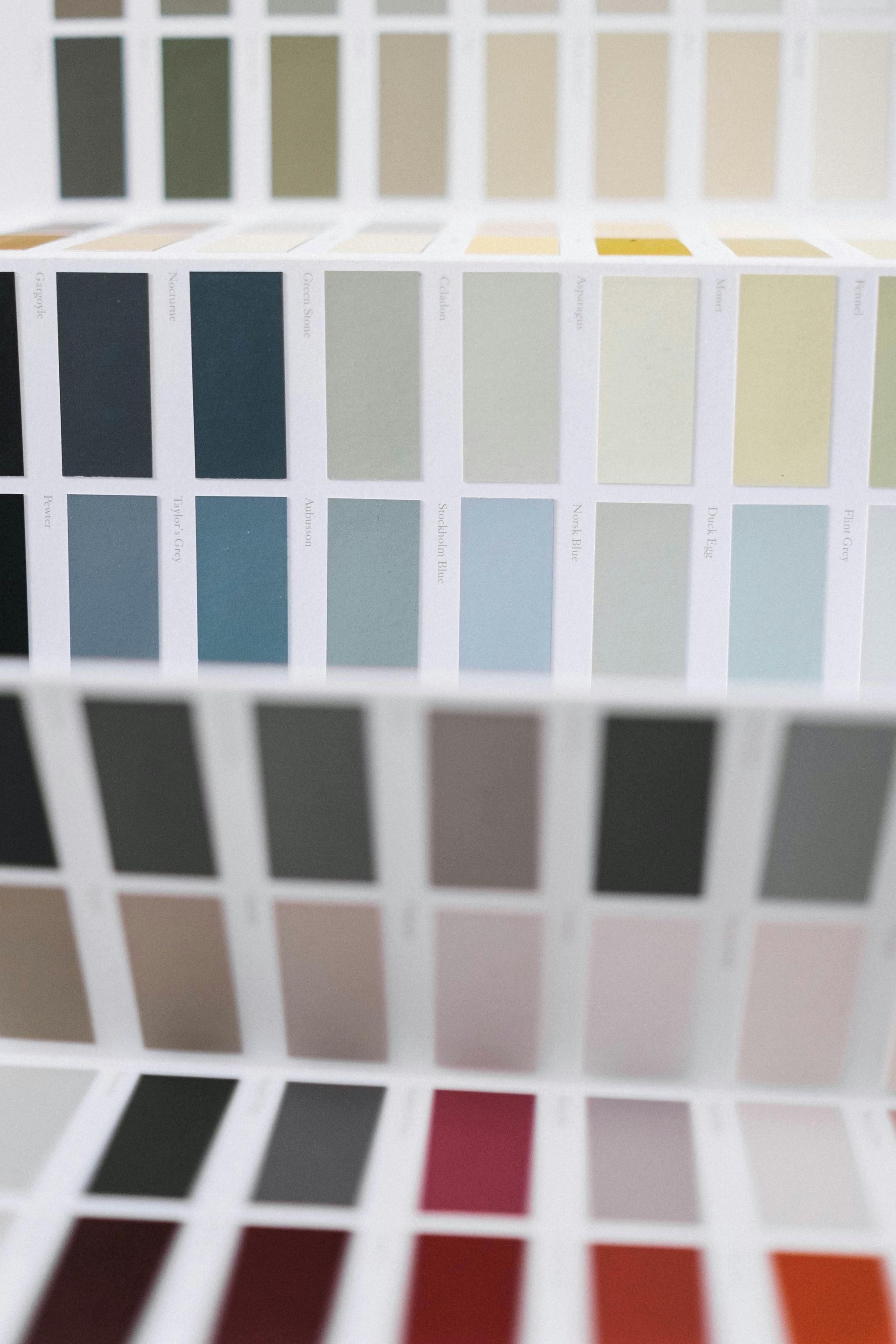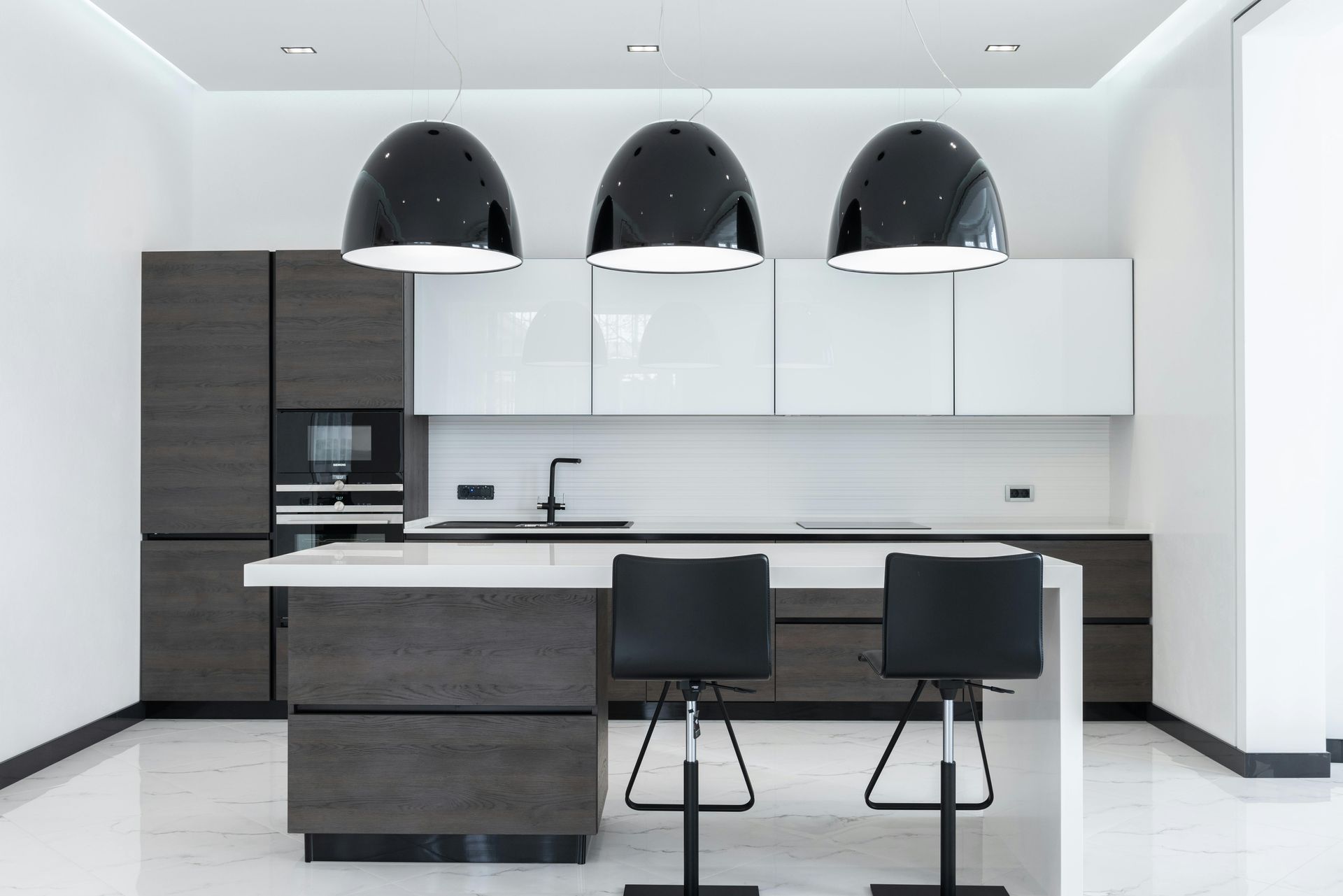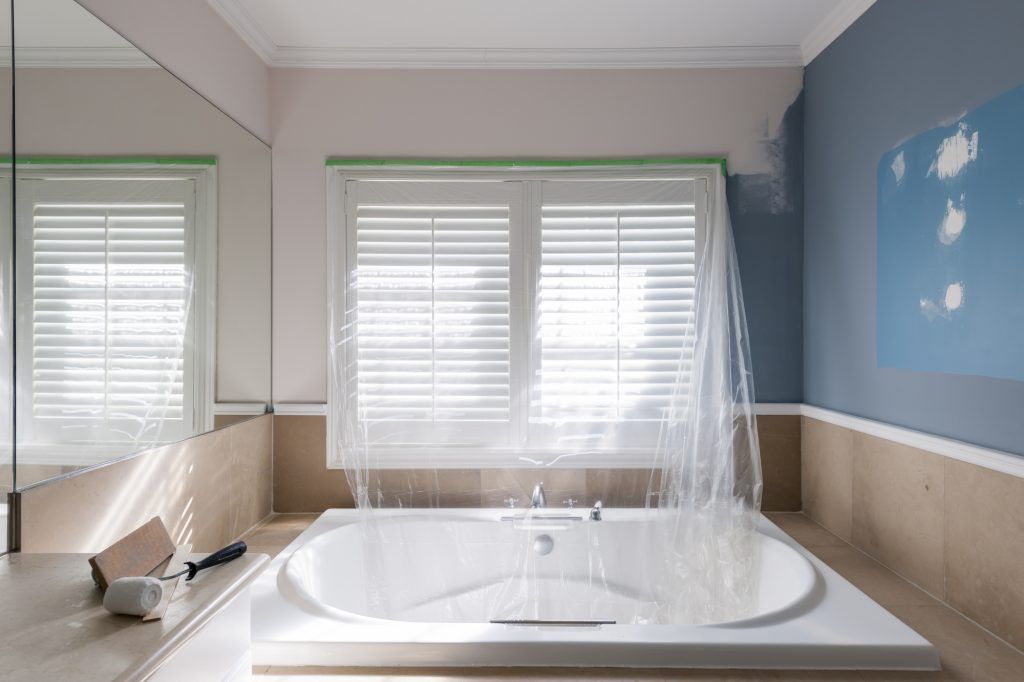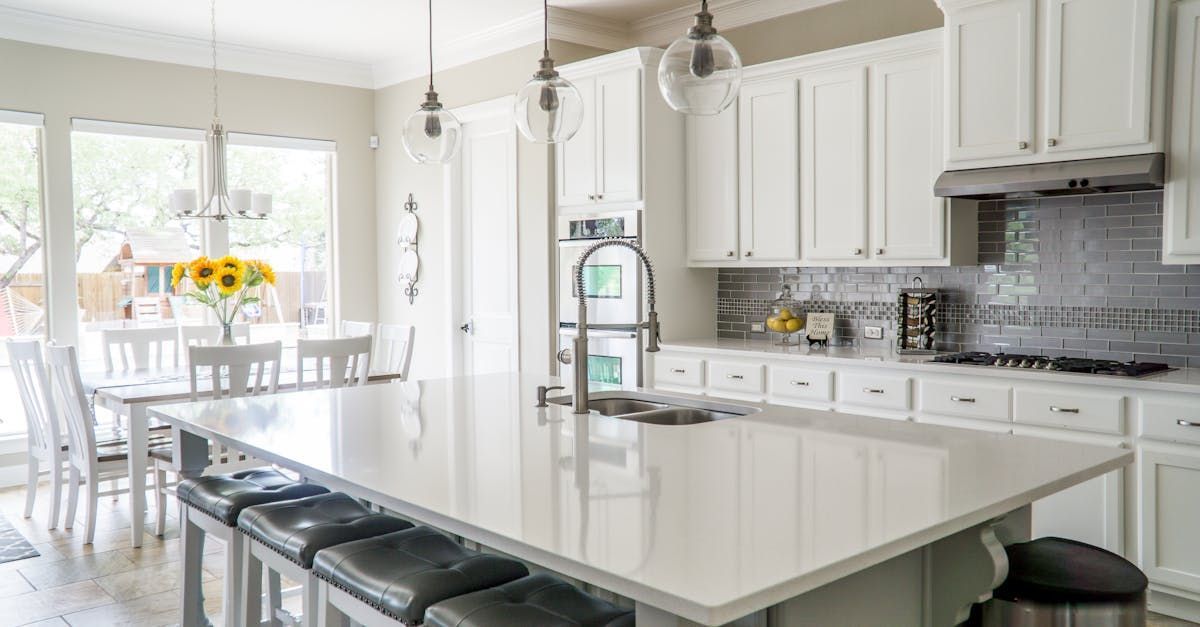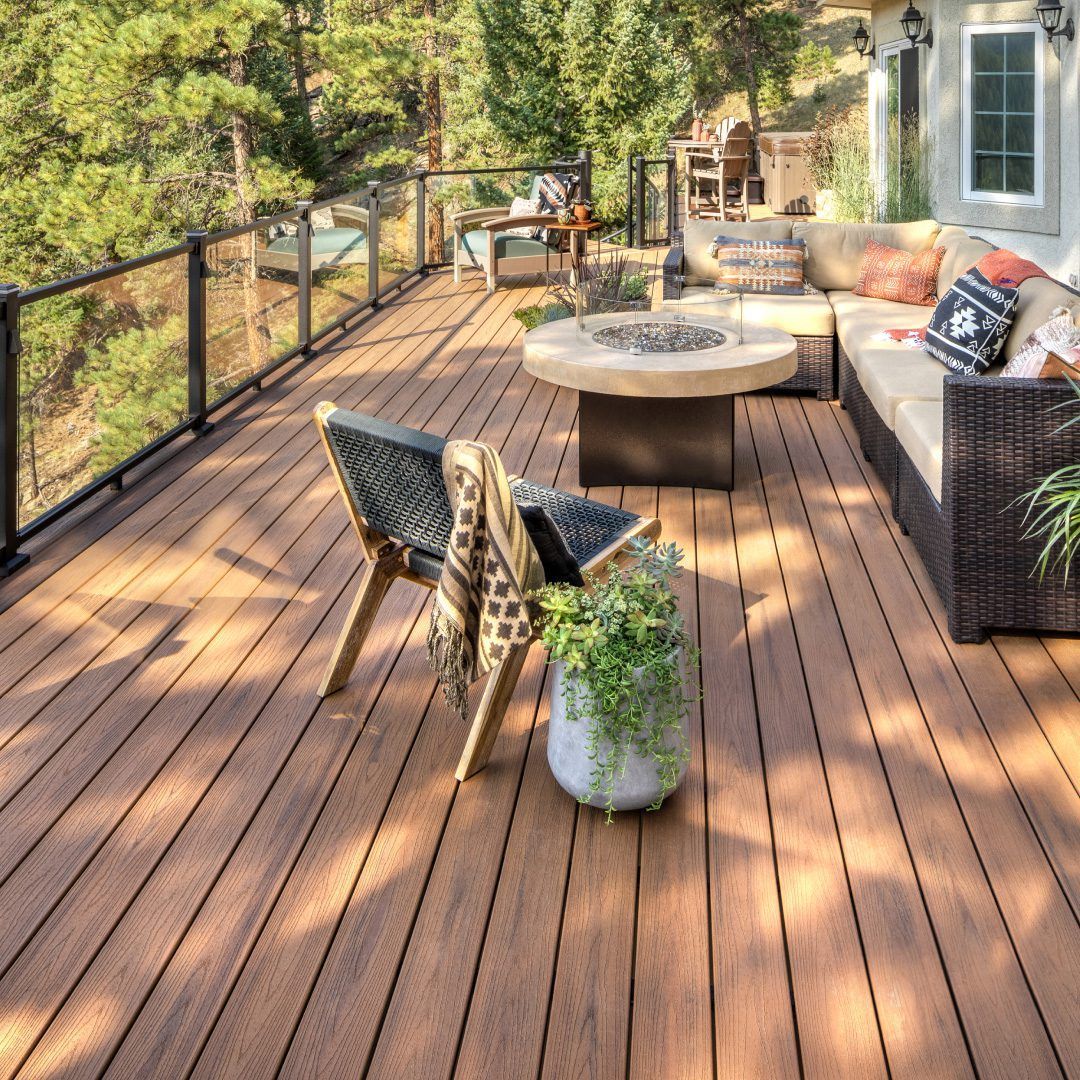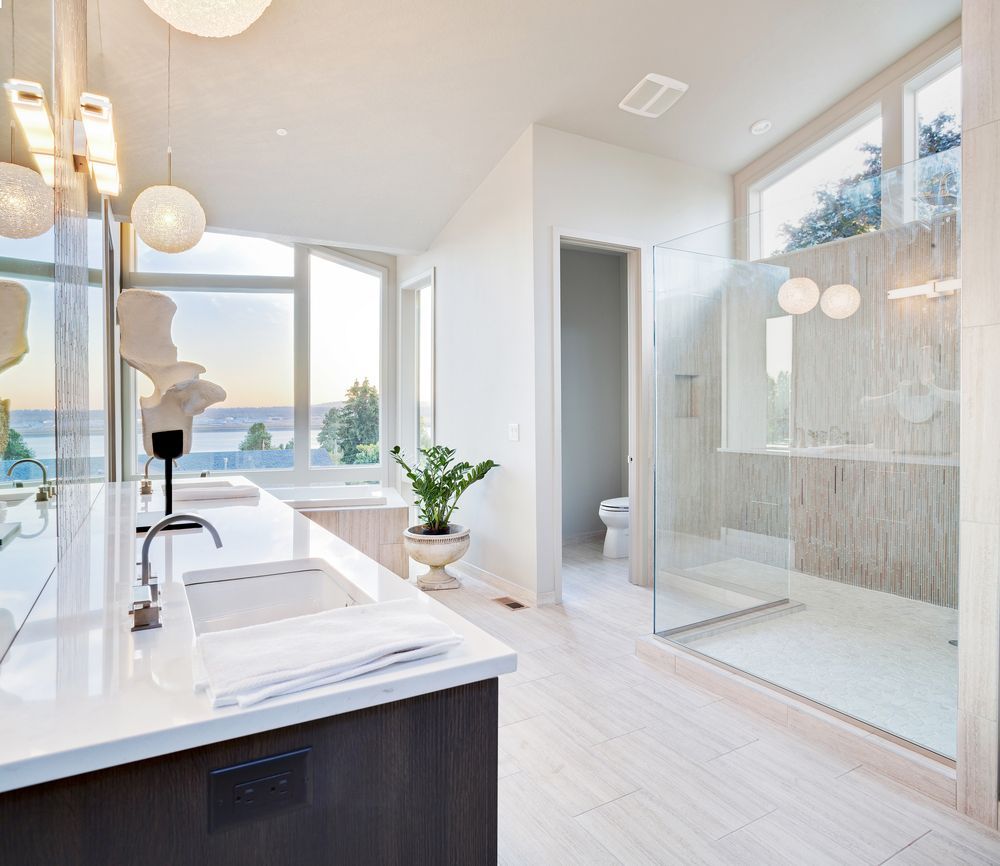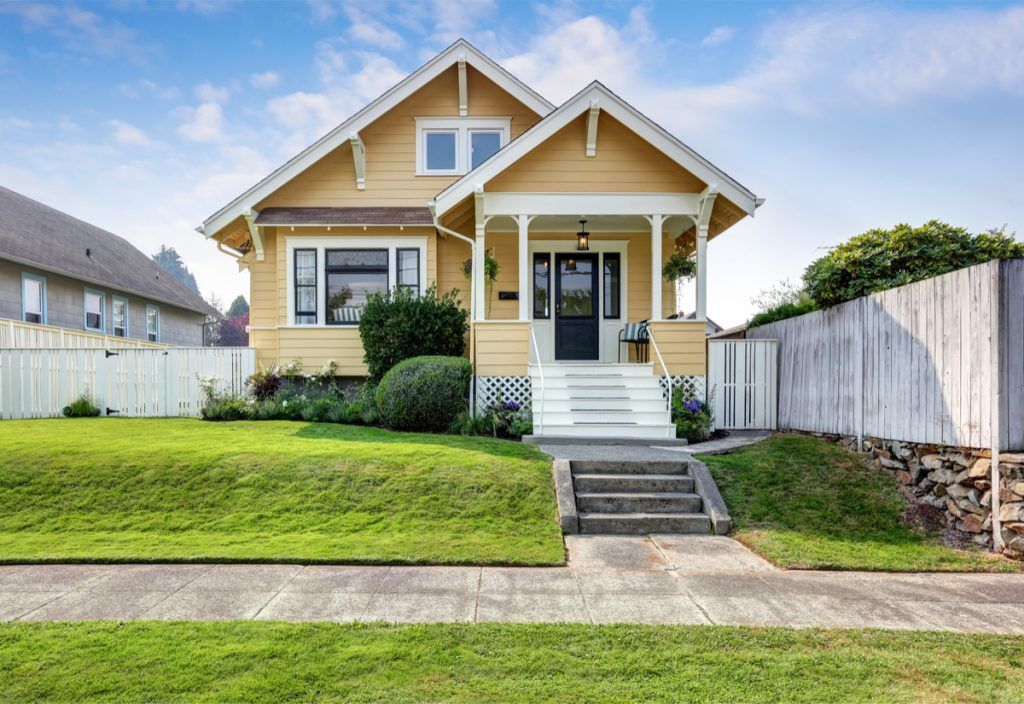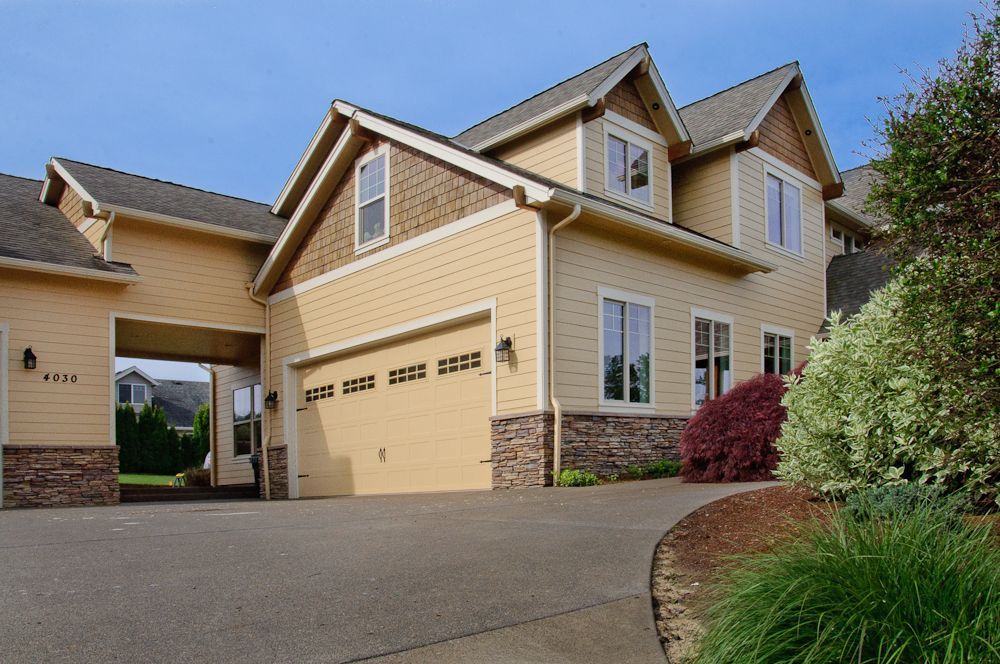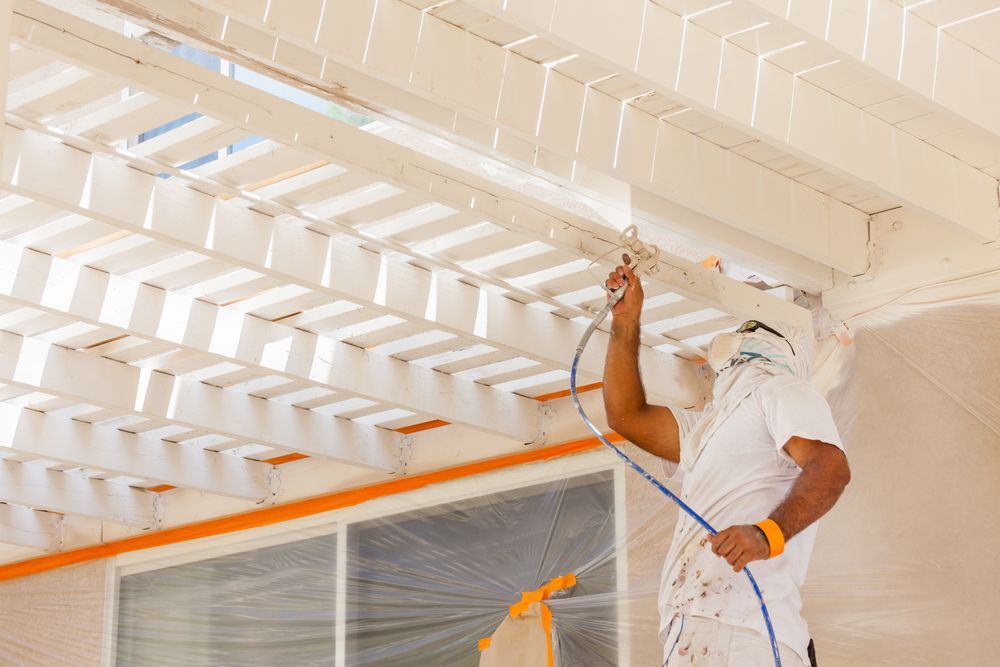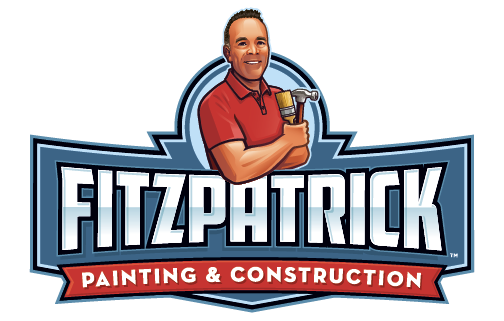Composite vs. Wood Deck: Which Is the Better Choice for Oregon Homes?
In the Willamette Valley, where backyard barbecues and soggy afternoons often go hand in hand, choosing the right decking material isn’t just about aesthetic appeal, it’s about durability, maintenance, and getting the most out of your investment. Homeowners here face a major decision when building or replacing a deck: wood or composite?
The good news? Both options can be great. The better news? You're about to find out which one makes the most sense for your lifestyle, your climate, and your future Saturdays. Let’s break it down so you can make the best call for your deck, and your weekends.
Understanding Wood Decking: Traditional Appeal with Maintenance Challenges
There’s something timeless about a real wood deck. That natural grain. The warm tones. The way it feels underfoot on a sunny day. Wood decking has been the go-to for generations, and it’s easy to see why. It’s affordable up front, widely available, and DIY-friendly if you’re the hands-on type.
But Oregon’s wet, moss-loving climate isn’t always kind to traditional wood. That rustic beauty can quickly turn into a splintered science experiment if not carefully maintained.
Pros of Wood Decking
- Lower upfront cost – Pressure-treated wood or cedar is typically cheaper to install than composite materials.
- Natural appearance – Wood lovers appreciate the unique grain patterns and rich, organic tones that change beautifully with age (at least at first).
- DIY potential – Handy homeowners often gravitate toward wood for its workability and custom potential.
Cons of Wood Decking
- Moisture issues galore – Oregon rain doesn’t take breaks, and neither should your deck maintenance. Wood tends to warp, crack, and attract mold like it’s throwing a party for fungi.
- High maintenance – Expect regular staining, sealing, and power washing to keep things looking decent—and safe.
- Shorter lifespan – Even with great care, wood decks in this region often need major repairs or full replacement in 10–15 years.
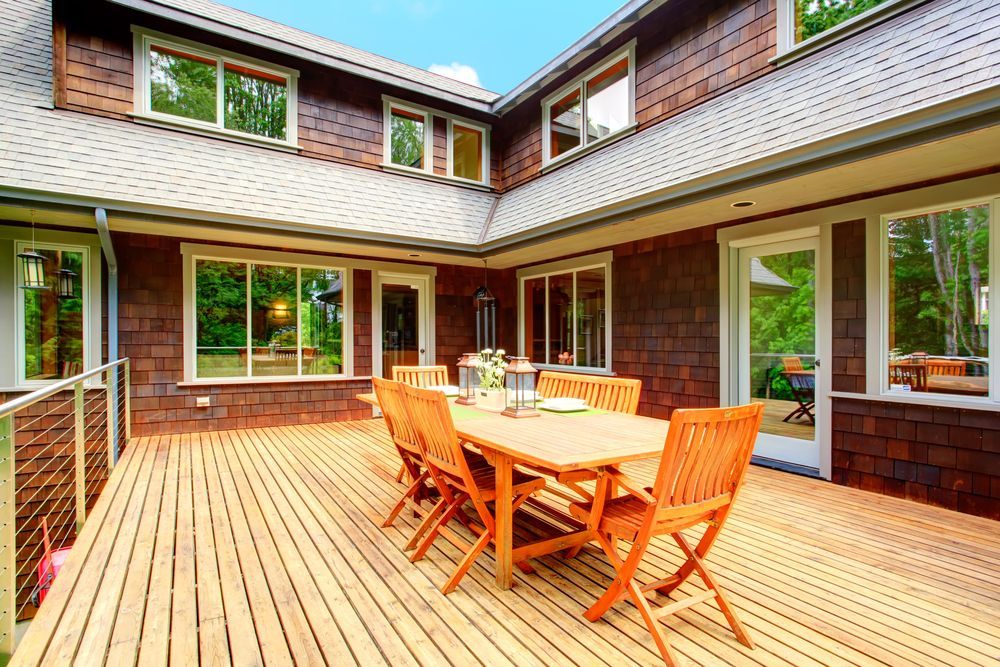
The Trex Advantage: Composite Decking Built for Pacific Northwest Conditions
Enter Trex composite decking: the no-splinters, no-mold, no-Saturdays-spent-scrubbing alternative to traditional wood. Trex was designed with wet climates in mind (*cough “like Oregon’s”) and is made from a blend of recycled plastic and wood fibers for long-lasting durability.
Pros of Trex Composite Decking
- Durability that lasts – Trex won’t rot, warp, or crack under pressure (or puddles).
- Low maintenance – A simple rinse with a garden hose is usually all you need. No staining. No sealing. No stress.
- Eco-friendly – Made from 95% recycled materials, Trex aligns with Oregon’s sustainability values.
- Long-term warranties – Trex offers warranties of 25 years or more, giving you peace of mind and fewer repairs.
Cons of Trex Composite Decking
- Higher initial cost – Trex decking can cost more up front than pressure-treated wood.
- Limited texture variety – While styles have come a long way, wood purists might miss the “real wood” feel.
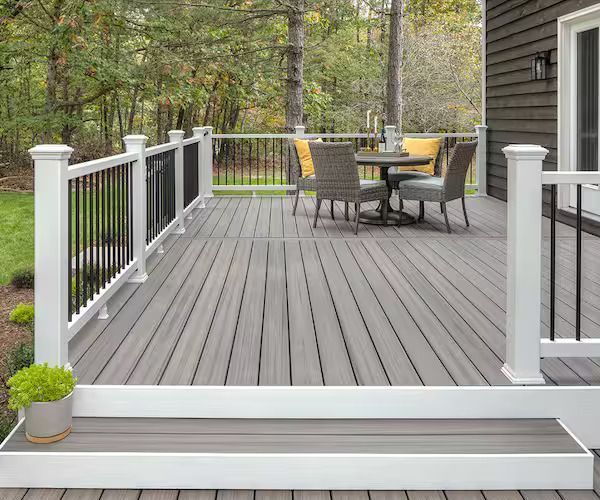
Long-Term Cost Comparison: Wood vs. Trex in the Pacific Northwest
Sticker shock is real, but it doesn’t tell the whole story. When it comes to decking, your initial price tag isn’t the final word. Especially not when Oregon’s climate keeps wood decks working overtime.
Maintenance and Replacement Costs
Wood decks require frequent sealing, staining, and repairs, especially after a few stormy winters. These costs add up fast. Over a 10-year span, maintenance on a wood deck can run you an extra $4,000–$6,000. Add in partial replacements or board swaps, and suddenly that “budget-friendly” option isn’t looking so budget-friendly.
Trex, by comparison, requires almost no maintenance and lasts longer. Many Oregon homeowners find it breaks even (or pulls ahead) after just 5–7 years.
Making the Right Choice: Is Trex Worth It for Your Oregon Home?
If you love the idea of a deck that resists rot, shrugs off the rain, and asks almost nothing from your weekends, Trex is a strong contender. Plus, with its recycled materials and eco-conscious manufacturing, it aligns beautifully with Oregon’s environmental ethos.
That said, the right choice depends on you. If you love the look of wood, don’t mind the upkeep, and plan to move in a few years, a wood deck might still make sense. But if you’re in your forever home, or want your deck to survive more than a few Duck football seasons, Trex could be the better long-term partner.
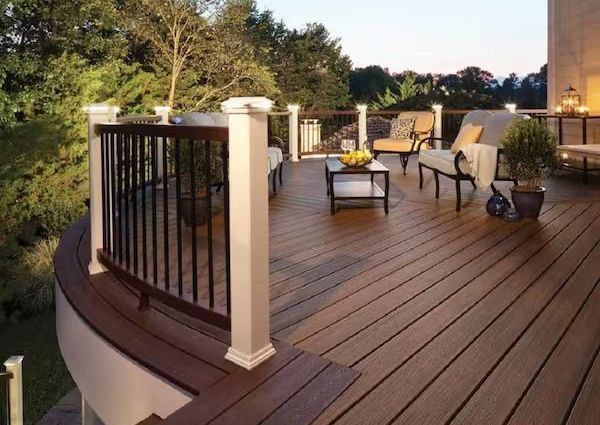
Schedule Your Free Trex Decking Consultation
At Fitzpatrick Painting & Construction, we’ve been building beautiful, weather-ready decks for over 30 years. As Trex-certified installers, we know the ins and outs of composite decking and how to make it work for your space, style, and budget.
If you’re considering a deck upgrade, let’s talk. We’ll walk you through your options and provide a no-pressure, no-obligation estimate. Rain or shine.
Frequently Asked Questions: Composite vs. Wood Decking
Q: How long does Trex composite decking last compared to wood decking in Oregon's rainy climate?
A: Trex decking is built to last 25–30 years or more, even in the wet Willamette Valley. Traditional wood decks typically last 10–15 years, depending on maintenance.
Q: Is the higher cost of Trex worth it compared to traditional wood decking in the Willamette Valley?
A: For many homeowners, yes. Trex’s minimal maintenance and longer lifespan often make it more economical within 5–7 years.
Q: What maintenance does Trex require versus wood decking in the Pacific Northwest?
A: Trex requires little more than a light rinse. Wood needs annual sealing or staining, plus regular cleaning to combat mold and mildew.
Q: Can Trex composite decking be installed over an existing deck frame?
A: Often, yes—if the underlying frame is structurally sound and up to current code. A professional inspection can confirm this.
Q: Does Trex composite decking get slippery during Oregon's rainy seasons?
A: Trex has textured surfaces designed to improve traction. While no deck is completely slip-proof when wet, Trex performs well in rainy conditions.

